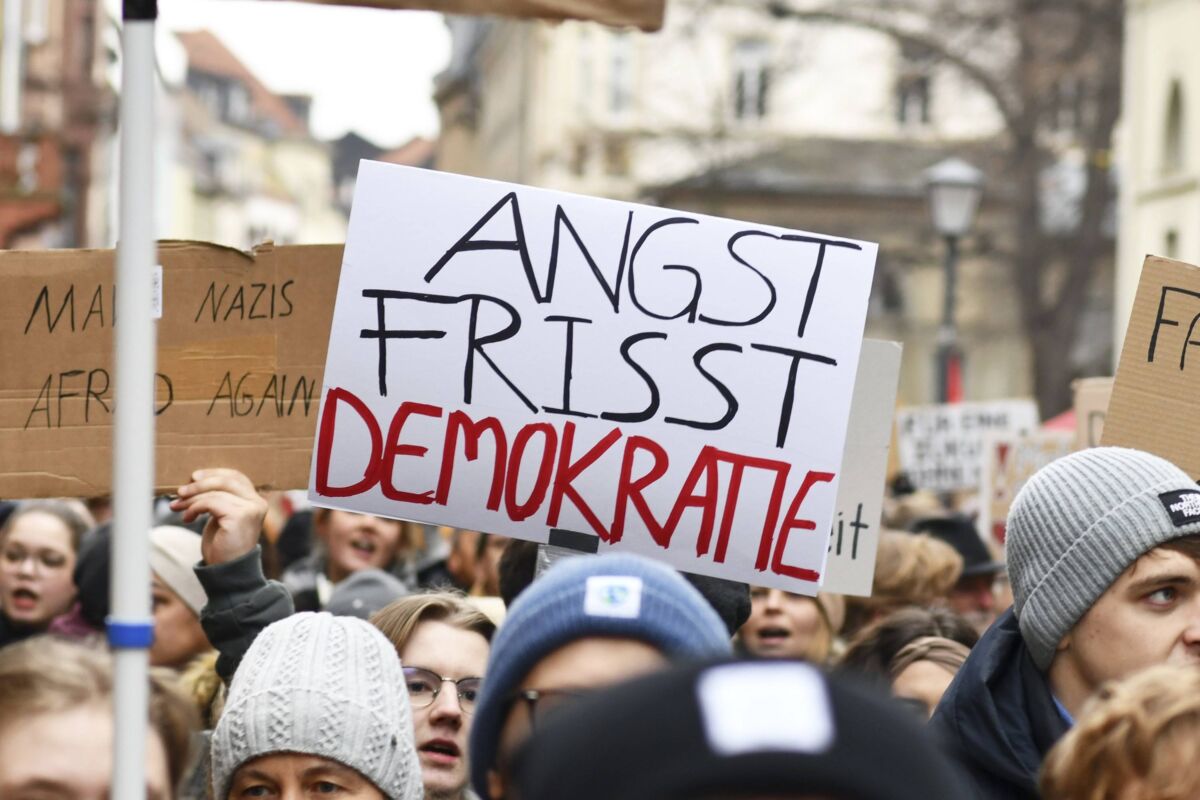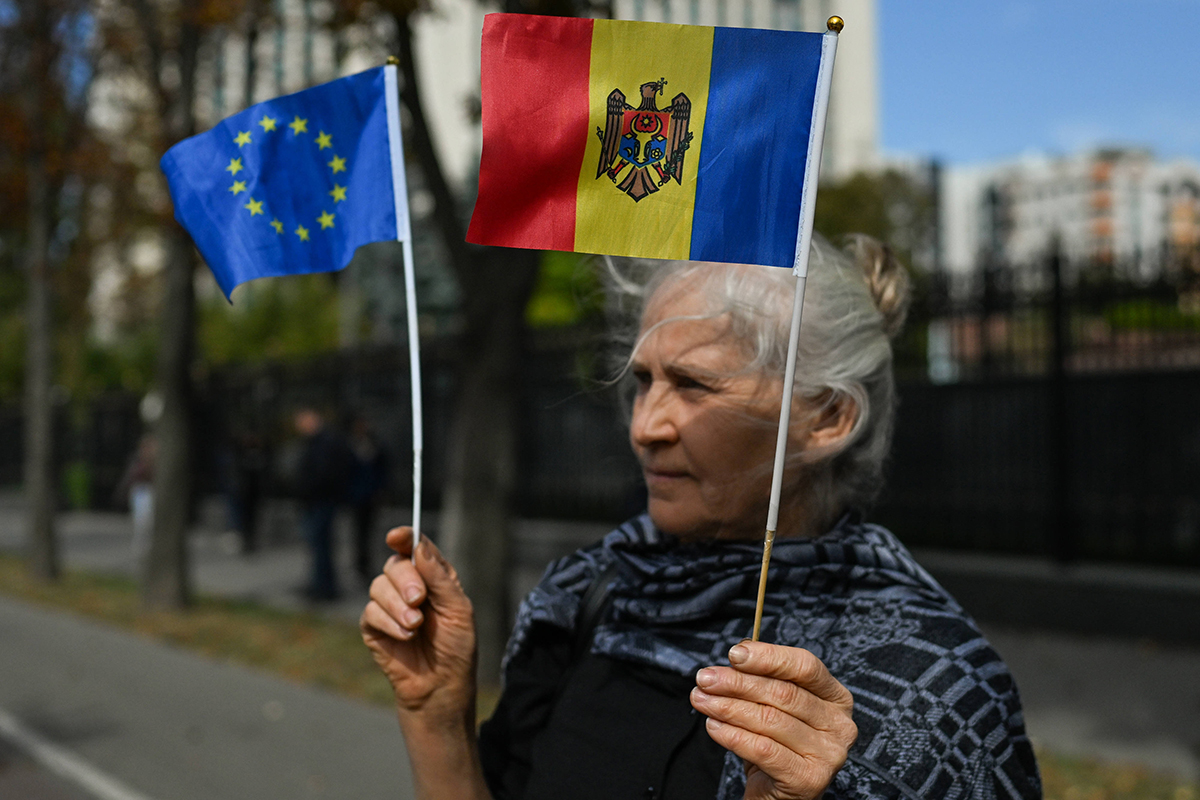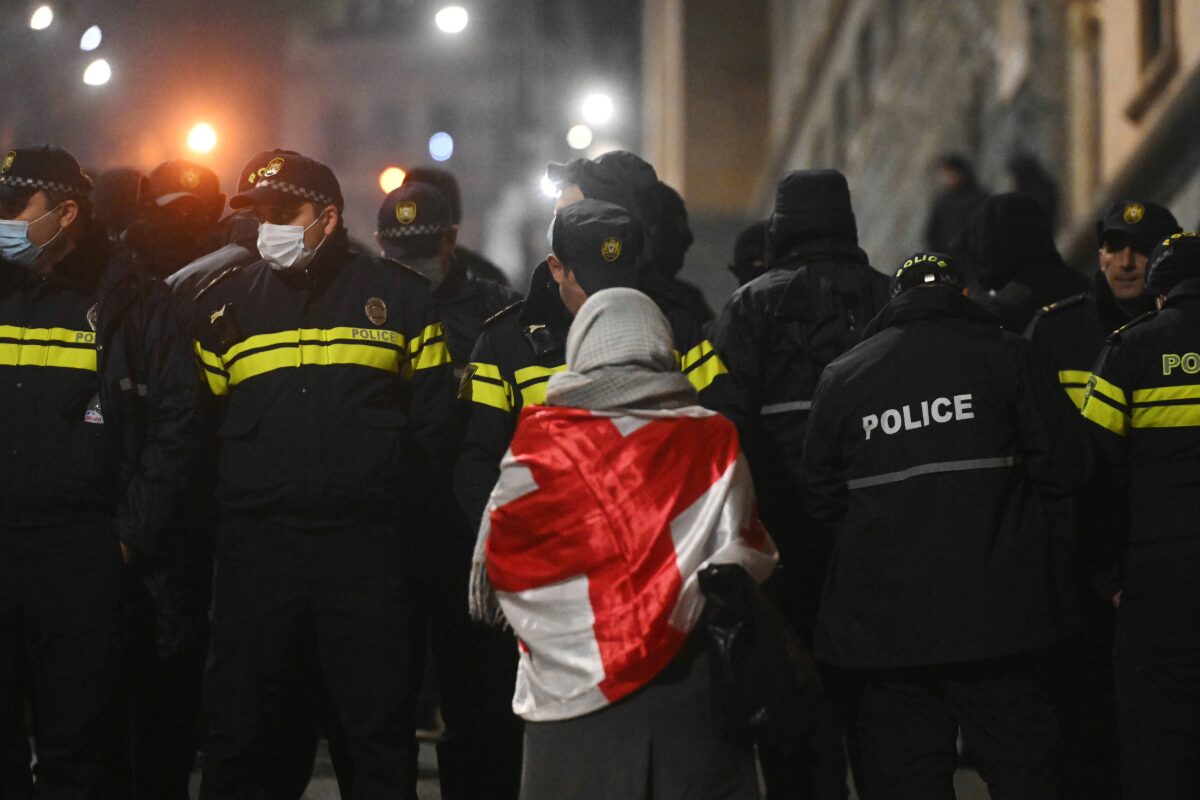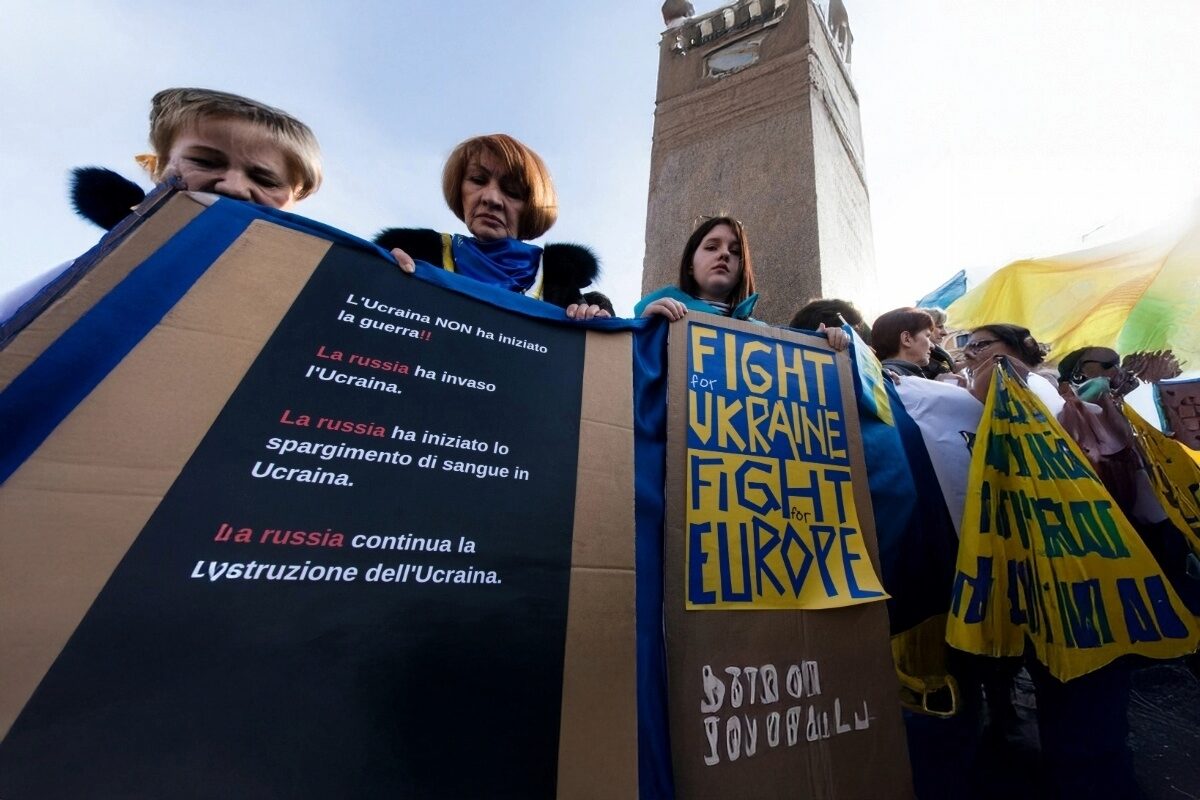Fear, Freedom, and a New Critique of Nationalism

The existential fear of death forms the deepest root of politics, Vlatko Sekulovic writes. While nationalism offers immortality through the nation and perpetuates hostility towards “the Other”, liberalism aims at transforming fear via creativity and freedom thus providing space for dialogue and plurality. A new critique of nationalism must therefore expose false promises, the Serbian lawyer and former Secretary of State, demands.
In this essay I want to follow the teaching of the great Italian liberal and father of political science in Italy, Gaetano Mosca: He argued that at the heart of political science lies the study of psychological tendencies at the collective level. This shall exactly be the approach in this essay.
An existential fear underlying human existence
Every human being inevitably carries within the awareness of mortality. This awareness is the source of a fundamental fear – the fear of death, and even more so, the fear of a meaningless death. From this emerges the central contradiction of human existence: the tension between the instinct for life and the awareness of its inevitable end. This contradiction shapes not only individuals, but also entire communities, ideologies, and political systems. It is this very awareness, generating unavoidable fear, that creates the framework within which human beings and communities seek meaning, security, and justification for their existence. In this sense, every ideology, in the words of Otto Rank, is an ideology of immortality. For a long time it was believed that interest and rational choice were the primary drivers of politics, yet today it has become evident that it is fear itself which constitutes the deepest source of political action. The approach presented here deliberately distances itself from “classical” psychology. It does not proceed from Freud’s contradiction between the life instinct and the death instinct, nor from cognitive dissonance as the fundamental explanation of human behavior. Instead, it is an existential contradiction: life with the awareness of finality brought by the passage of time.
Nationalism transcending fear
Nationalism, from this perspective, can be understood as an ideology of fear manipulation. Its appeal does not rest on economic interests or rational calculations but on the promise of immortality through the nation, as an object of transcendence, sacralized to the point of becoming a “secular religion.” The individual, aware of mortality, finds comfort in the idea of the eternity of the people to which one belongs. Sacrifice for the nation ceases to appear as a meaningless death; on the contrary, it acquires the aura of meaning and continuity – a symbolic „victory“ over death, providing a sense of control in life. This is precisely the magnetic power of nationalism – in the promise that individual death is not the end, but part of the eternal story of the collective.
The promise of security needs a threat from outside: Creating the Other
Yet this promise is inherently contradictory. To guarantee security “within,” nationalism must perpetually generate threats from the “outside.”. Fear is not eliminated but renewed through myths of endangerment, eternal enemies, and the necessity of struggle for survival. In this way, nationalism colonizes the future through enslavement: instead of becoming a space of free creation, it is transformed into a predetermined path of perpetual fear and repetition of past conflicts. In this sense, nationalism is not love or affinity for one’s own group, a Weberian cultural community, „Kulturgemeinschaft“, but above all fear of another cultural community, and its members, which we define as a nation or a people.
Given that nationalism represents a renewed main threat to peace and stability in Europe, if not in the world, liberal thought must confront it. A new critique of nationalism must begin precisely from this point: nationalism does not liberate from fear, but perpetuates it. It offers the illusion of meaning, but pays for it by suppressing plurality and individual freedom. In its essence, nationalism closes the space for an open search for meaning, because it reduces all answers to a single community and a single symbolic framework. In doing so, it not only limits individual and social development reinforcing existential insecurity, constantly feeding the sense of threat.
Liberalism: Collective search for meaning instead of ready-made answer
By contrast, liberalism can be understood as an ideology that does not promise eternity, but space. It does not offer predetermined meaning but creates a framework in which different people, with different answers to the question of finality, can live together. Liberalism does not attempt to suppress fear with the illusion of an eternal nation but accepts it as a starting point. Precisely for this reason, liberalism opens the possibility for fear to become a driver of dialogue, solidarity, and cooperation, rather than a generator of conflict.
In this sense, liberalism offers the widest space for the collective search for meaning. It accepts human beings as finite, but emphasizes that meaning can be built through freedom of choice, exchange of ideas, and the building of trust in community. Societies that succeed in developing institutions based on law and dialogue, societies that minimize violence and meaningless deaths, become those in which fear is transformed from a destructive force into motivation for creation.
Former Yugoslavia: The loss of an ontological framework
The traumatic experience of the disintegration of Yugoslavia, both during the Second World War and after the socialist period, clearly shows what happens when fear is instrumentalized rather than given meaning. For decades, Yugoslavia functioned as a framework that gave different peoples and cultures a sense of shared security and meaning. Its collapse was not only a political and economic breakdown but also a profound existential trauma. People lost the ontological framework of reality, the assurance that they belonged to a community that would endure. In the vacuum that followed, Serbian nationalism, within the Serbian cultural community, was both the cause and the outcome, offering simple but devastating answers: eternal fear of the other and the promise of immortality through the nation. Wars, ethnic cleansing, and collective traumas testified that nationalism does not free from fear but turns it into the constant fuel of political action. A very similar, if not identical, pattern can be recognized in the collapse of the USSR and in today’s war in Ukraine. Reinvented Russian nationalism simply cannot accept the existence of “others,” such as Ukrainians or the “liberal West,” who, by their very existence, are constructed as a threat to the existence of Russia and Russians—re-engineered in nationalist terms.
Liberalism: Adressing existential contrdiciton of human existence
Liberalism today faces a great challenge. If it is to remain relevant, it must confront the real and growing fears of contemporary humanity: fear for one’s own identity as a shell of fear management; fear of the other and the different, of migration and cultural change; fear of illness, which reminds us of the body’s frailty; fear of poverty and economic insecurity; fear of old age and the loss of dignity; fear of technology slipping out of control; fear of artificial intelligence, which raises the question of the future of human freedom. If it does not offer answers to these fears, liberalism will lose its strength and yield ground to nationalisms and authoritarian ideologies that offer simple but false answers.
A new critique of nationalism, grounded in this premise, is not reduced to a mere condemnation of its exclusivity, but goes further: It demonstrates that nationalism is incapable of addressing the existential contradiction of human existence. It merely prolongs fear, whereas liberalism offers a framework in which fear does not need to lead to conflict, but rather to a collective search for meaning. Freedom, therefore, is not achieved by abolishing fear, but by giving it meaning – and it is precisely in this transformation that the political task of our time lies.
Reimagining fear: Creative response to existential fear
This perspective also opens the way to a new political ethic. If fear is the fundamental category, then politics must not be based on its instrumentalization, but on its reimagining. This means building communities that do not cultivate myths of an eternal enemy, but instead foster trust and solidarity. A community that succeeds in transforming fear into a space of freedom and dialogue, rather than into the prison of national myths, becomes truly free.
Here arises the need to recall a forgotten freedom – the freedom from fear. Upon it, in the most difficult moments of the twentieth century, Franklin and Eleanor Roosevelt insisted. Franklin Delano Roosevelt, in his 1941 speech, emphasized that the four freedoms are the universal rights of humanity: freedom of speech, freedom of worship, freedom from want, and – freedom from fear. Eleanor Roosevelt, a few years later, wove this idea into the Charter of the United Nations and the Universal Declaration of Human Rights, giving it a universal, civilizational significance.
Today, in a time of global insecurity, inequality, and technological challenges, returning to this idea becomes essential. Freedom from fear does not mean the illusory abolition of fear but its reimagining through human rights, democracy and social institutions that provide security, justice, and dignity. It is the freedom that allows human beings to face their own finality, but also to find meaning in shared life.
Fear as the inescapable starting point for politics
Contemporary political responses, grounded in the liberal framework, must therefore be a continuation of this idea. Liberalism can no longer be understood merely as a set of procedures and rights, but as a project of building communities that will enable people to confront fundamental fears. This means addressing the question of diversity and migration, providing health and social security, reducing economic inequalities, fighting organized crime, protecting the environment, developing an ethical framework for technology and artificial intelligence, and building global institutions that safeguard human dignity.
The shift of focus from interest to fear as the key driver of politics represents an attempt to provide new answers to the questions of the contemporary world. In a time when global crises – wars, climate change, pandemics, organized crime, and technological revolutions – shape the lives of millions of people, it is clear that interest is not enough to explain collective behavior. People do not vote, protest, and wage wars only out of interest; they do so because they seek to diminish fear, to find security and meaning in confronting their own mortality.
Therefore, the new critique of nationalism and the new affirmation of liberalism must rest on the recognition that fear is the inescapable starting point of politics. Nationalism offers a false exit, sustaining fear through constant threats and myths. Liberalism, by contrast, is not an ideology that merely can become an alternative, but the ideology that – compared to other great ideologies of the West – has the greatest potential to transform fear into a driving force for the constructive reimagining of life, primarily through the personal fulfillment of the individual, as the precondition for building free and solidaristic communities.
Freedom from fear
The return to the idea of freedom from fear, as the forgotten foundation of human dignity, represents the most important political task of our time. It entails, above all, a clear and unequivocal moral condemnation of nationalism, but not the renunciation of the nation as a collective category. On the contrary, it requires the reimagining of the nation on the basis of the management of fear, not its manipulation – a nation that no longer rests upon the production of enemies, but on the capacity to provide its members with security, trust, and meaning in shared life with „different“ human beings also organized into desacralized nations.
In this sense, what is required is also a steadfast opposition to the demand for loyalty to only one “nation-state,” as nationalists seek to impose, and instead the affirmation of openness to multiple communities of belonging – local, national, regional, and global – that enable humanity to escape the illusion of enclosure and perpetual threat, and to transform fear into a space of solidarity and both individual and collective search for meaning. This represents not only the condition for the survival of complex communities such as the European Union, but also the necessary framework for managing the risks of international disorder arising from nationalistic nations driven solely by self-interest, locked in a competition that may once again lead to unseen tragedies.
t
Hat Ihnen unser Beitrag gefallen? Dann spenden Sie doch einfach und bequem über unser Spendentool. Sie unterstützen damit die publizistische Arbeit von LibMod.
Spenden mit Bankeinzug
Spenden mit PayPal
Wir sind als gemeinnützig anerkannt, entsprechend sind Spenden steuerlich absetzbar. Für eine Spendenbescheinigung (nötig bei einem Betrag über 200 EUR), senden Sie Ihre Adressdaten bitte an finanzen@libmod.de
Verwandte Themen
Newsletter bestellen
Mit dem LibMod-Newsletter erhalten Sie regelmäßig Neuigkeiten zu unseren Themen in Ihr Postfach.





